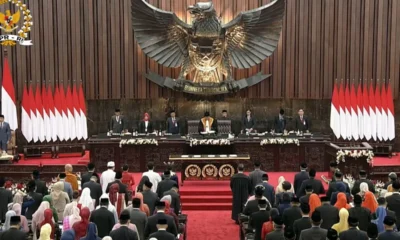Forgotten Dairies
Debate: Yerima Deserves Apology, Not Wike -By Isaac Asabor
When soldiers abuse power, we rightly condemn them. When politicians do the same, we excuse them, and that double standard is killing accountability. Yerima’s restraint reminded Nigerians that respect is earned, not demanded. He upheld the dignity of his uniform while the minister abandoned the dignity of his office.

When the dust settles on the now-infamous altercation between Minister Nyesom Wike and Lieutenant A.M. Yerima of the Nigerian Navy, Nigerians must look beyond politics and tribal sentiment to ask: Who truly upheld the law, and who broke it?
Those who watched the viral video saw one clear truth: it takes great emotional intelligence, not arrogance, for a uniformed officer to stand calm while a powerful minister publicly hurls insults at him. In that tense moment, Yerima neither shouted back nor lost composure. That restraint alone tells a story about discipline, the kind of discipline our democracy desperately needs from those who bear arms in its defense.
Ostensibly miffed over the disputed piece of land, which he said was being illegally developed, Wike, fiery as ever, stormed the site to enforce his directive halting unauthorized construction. On the other side stood Yerima, reportedly acting under orders from a former Chief of Naval Staff, Vice Admiral Awwal Gambo.
Against the backdrop of the foregoing facts, what followed was a spectacle that never should have happened. Wike, visibly enraged, called Yerima a “fool” and demanded to know who gave him the audacity to challenge a minister. Yet Yerima remained calm, respectful, and professional. Instead of becoming infuriated at being called a “fool,” Yerima’s refrain to Wike’s insult was simple: “I am not a fool, sir.” For many Nigerians, the shock was not that a minister confronted a soldier, but that the soldier refused to be drawn into chaos. In that, disciplined silence lay a moral victory.
At this juncture, it is germane to opine that leadership without restraint is tyranny. The ability to manage one’s emotions under pressure is what separates true statesmen from strongmen. What Wike displayed that day was not strength; it was impulsivity disguised as authority.
By contrast, Yerima’s calm was not cowardice, it was discipline. The man was being insulted in public, yet chose composure. He understood that power without control becomes abuse. It takes a stronger man to hold his peace than to explode.
Besides, no law empowers a minister to insult or intimidate a serving officer. Even the President cannot call a citizen a fool. Authority in a democracy must be exercised within the boundaries of civility. As Femi Falana, SAN, rightly observed, “No minister has the power to call any Nigerian a fool.” Wike’s control over Abuja’s land is unquestioned, but his lack of decorum was inexcusable. He represents the President, yes, but he also represents the tone and civility of government.
What happened at that site was not a clash between civilian and military authority; it was a clash between arrogance and restraint. Yerima may have been misdirected, but Wike was emotionally reckless. For PANDEF to demand a ‘national apology’ to Wike is, frankly, absurd. It insults Nigerians who expect responsible behavior from public officials. If anyone deserves an apology, it is Yerima, for enduring humiliation while doing his job.
Wike’s record of public outbursts is long. From berating civil servants to shouting at journalists, he often mistakes intimidation for leadership. This episode fits that pattern, only this time, he met an officer who refused to descend to his level.
Nyesom Wike has earned a reputation for being energetic and decisive, but his methods often betray a troubling disregard for due process. As FCT Minister, he seems to operate on impulse, more as an enforcer than an administrator bound by law. His recent threat to shut down 34 embassies over unpaid ground rents is another case in point. Rather than pursuing diplomatic dialogue or structured enforcement through proper channels, Wike rushed to brandish threats that directly contradict international conventions. This heavy-handed approach may project authority, but it exposes the government to needless legal and diplomatic embarrassment.
Repeatedly, Wike’s governance style has favored spectacle over substance, quick actions that make headlines but ignore procedure. From demolitions carried out with scant transparency to arbitrary policy declarations, he tends to act first and justify later. In a democracy governed by laws and institutions, such disregard for process is not strength; it is recklessness dressed as efficiency.
Civilian supremacy does not mean civilian abuse. Democracy thrives when both politicians and the military respect institutional boundaries. Ministers are not above the law; soldiers are not beneath dignity.
As several retired generals and lawyers noted, Yerima’s obedience to orders might have been misplaced, but his composure was not mutiny. The Supreme Court has ruled that soldiers are not bound to obey unlawful orders, but it has never said they must endure public insult from politicians.
Respect for civilian authority must be reciprocal. The military must remain disciplined, but politicians must also act with humility. When either side fails, democracy suffers.
Wike’s defenders claim he was protecting the authority of President Bola Tinubu. That is false. Every time a minister loses his temper in public, it diminishes the dignity of the government he represents. The President’s power is not asserted through insults; it is upheld through procedure, patience, and lawful conduct. Had Wike handled the matter through official channels, the Defence Ministry, the Chief of Defence Staff, or the courts, he would have set a fine example. Instead, he turned a legitimate enforcement exercise into a street confrontation.
It takes rare control for a young officer to face a raging minister, endure verbal abuse, and still stand firm without aggression. That is professionalism. That is emotional intelligence.
When soldiers abuse power, we rightly condemn them. When politicians do the same, we excuse them, and that double standard is killing accountability. Yerima’s restraint reminded Nigerians that respect is earned, not demanded. He upheld the dignity of his uniform while the minister abandoned the dignity of his office.
This was never just a clash over land. It was a clash of character. The officer showed discipline; the minister showed temper. The officer embodied professionalism; the minister exposed pride.
If Nigeria truly values democracy, it must demand civility from those who wield authority. Power without restraint is not leadership; it is insecurity on display.
At this juncture, permit me to declare, in this context, that Lieutenant A.M. Yerima deserves an apology, not Wike. The reason for this unbiased judgment cannot be pooh-poohed. This is because, in that confrontation, it was the uniform that showed dignity, not the office.




























